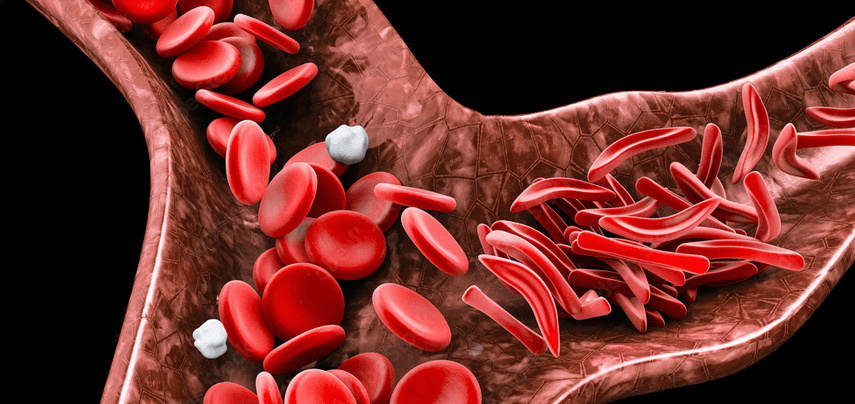SCAGO
Table des matières
Introduction
The study was carried out by Sickle Cell Awareness Group of Ontario formerly known as Seed of life Philanthropic Organization Between August 2005 and March 2007.
What is Sickle Cell Disease (SCD): It is a genetic blood disorder that affects the red blood cells. It causes the red blood cells to become hard and sickle-shaped which makes it difficult for the blood cells to travel through the small blood vessels. Normal red blood cells are round and last approximately 120 days while the red blood cells of a sickle cell patient last for only 10-20 days.
Sickle Cell Disease affects those whose ancestors are from Africa, the Caribbean, Latin America, South America, India, Asia, Middle-East& the Mediterranean.
Globally, a quarter of a million children are born with the disease each year with the majority from Africa.
With the growing number of people of African ancestry migrating and living in Canada, it is of paramount importance to understand how to reach these people along with the other ethnic groups affected by SCD.
Unlike Cancer, SCD has been treated as a minority problem. This has hampered funding that could have helped to understand why it is rampant within some cultures more than the others even in the at-risk communities and to find ways to support those living with the disease.
Very little study has been conducted if any at all on understanding these grassroots cultures.
We found that many Africans for instance, are coming from cultures where any incidence perceived negative is considered shameful by the family and to avoid shame, many will hide the perceived negative event/occurrence. For instance, for many years it was believed that a marriage producing only female children is negative and the fault is the women. Many times, such a woman would be sent packing simply for not being able to produce a male child.
Similarly, losing one’s child while one is still alive is considered a curse by the gods.
It is not surprising then to realize that having a disease such as sickle cell is unacceptable and considered shameful.
Hence, many families refused to discuss their children’s health deficiencies even with their extended family members and neighbors. This is for the fear that the children will be labeled as “soon to die” and everybody will look down at their family as “the family with the sick child”
With no support group to help and no one that understands the stress, many carry the burdens of raising sickly child/children alone.
This is the culture that many immigrants in Canada are coming from.
To be able to reach both the young and the old from these cultures, we must understand who they are, their beliefs and it is only then that we will be able to let them know that there is no shame in having SCD while educating them on the choices available to them in order to prevent more incidences of the disease.
It is important to let individuals from ethnic cultures with a high incidence of this disease understand that having genotype testing (Hemoglobin Electrophoresis) is a good way to know their sickle cell status. It will help to eliminate the ignorance and secrecy that surround this disease. Many will be more open and discussing sickle cell disease will no longer be such a taboo.
Doctors, nurses, social workers, caregivers, counselors need to understand what the challenges of the people from different ethnic groups are and hear about their experiences & thoughts in order to be able to provide care that targets total needs.
Our Team & Partnerships
In Mid-2005, the Sickle Cell Awareness Group of Ontario (SCAGO) started to actively visit churches and other venues where ethnic groups, both young and old are; in other to educate them on sickle cell disease.
Various interactive forums & interviews were conducted and questionnaires were given out to be filled.
From many of the responses, it was realized that many of the at-risk communities are not well understood by both the medical practitioners and the extended community.
SCAGO realized that it must work with the community leaders, medical and allied health practitioners, and spiritual leaders if many in the At-Risk communities must be reached, educated, and supported.
A few of the leaders that we are currently working with are:
Spiritual & Community Leaders:
Rev. Audley James-Founder and Senior Pastor, Revival Time Tabernacle Senior
Apostle Igberase- Senior Pastor, Christ Chosen Church of God Pastor
Tayo Ojajuni- Senior Pastor, the Redeemed Church of God
Mr. Lawson- President, Nigerian Canadian Mosque.
Medical Professionals:
Dr. Isaac Odame – Hematologist, Hospital for Sick Kids
Dr. Olaniyi Ajisafe – Family Physician, Safe Care Medical Center
The Study
August 2005-March 2007: Questionnaires were given out at different events and churches. Over 350 questionnaires are used for the purpose of this study, subjects’ ages ranged from 18 to 75. This group includes youths, parents, and grandparents. Including their names are optional. Out of 350 questionnaires sampled, 200 have heard about SCD and genotype testing at one time or the other.
150 have heard about SCD but hearing about genotype testing for the first time
Out of the 200 people that knew about genotype testing, 105 know their genotype from their country while 95 have not been tested. These indicated that they will go for this testing at a later date due to the impact of the seminar/forum.
Out of the 150 that are hearing about genotype testing for the first time, 120 decided that they will go for this testing while about 30 are indifferent.
The locations/events where the questionnaire samples are collected
Christ Chosen Church ofGod,
The Redeemed Christian Church ofGod,
The Nigerian CanadianMosque,
Planet Africa Television’s 2006 Forum on Sickle cell anemia,
Malvern ChristianAssembly,
SCAGO’s May 27th, 2006 Forum on Sickle Cell Disease & other communal Issues.
Questions asked were meant to show attitude towards SCD, the familiarity of subjects with genotype testing if they have had it done, and if not, has the seminar/event they are attending influenced them to want to get this testing done for both themselves and their children.
SafeCare Medical:
SafeCare Medical included a hemoglobin electrophoresis test in the blood work of all patients for a period of three to six months. The test results identified 1 in 4 of individuals from specific African cultures as carriers of the sickle cell trait. Nigerians ranked highest on the list of carriers.
About this booklet
This booklet provides an overview of the questions asked in the questionnaire and the interview conducted with comments from individuals living with SCD, mothers living with sickle cell patients, youths who do not know their carrier status, carriers of the sickle cell genes, a family doctor as well as community and spiritual leaders from the At-Risk Communities of Jane/Finch and Scarborough areas.
We hope that reading this study will:
Help both parents and young people, especially from the African cultures where there is a strong shame stigma attached to this disease, that there is really no shame in having SCD or carrying the
Help the health care professionals understand the needs of the different cultures represented in Canada as evident in what some considered shameful and hopefully help them overcome the unnecessary stigma while recommending adequate testing and care that will improve their state of
Help many patients and their family members become more open and join various support
Encourage many to get the Hemoglobin Electrophoresis testing
Help turn SCD from a hush disease to an openly discussed
Reduce the level of ignorance and stigma associated with SACD
Help many immigrants from the At-Risk communities understand the culture of their new country and the need to freely adapt and assimilate the openness of Canadian Culture, especially where it comes to discussing
Our contact information is at the back and we hope that as many as needed genetic counseling and more information about sickle cell disease will feel free to contact us whenever they wish.
Articles








